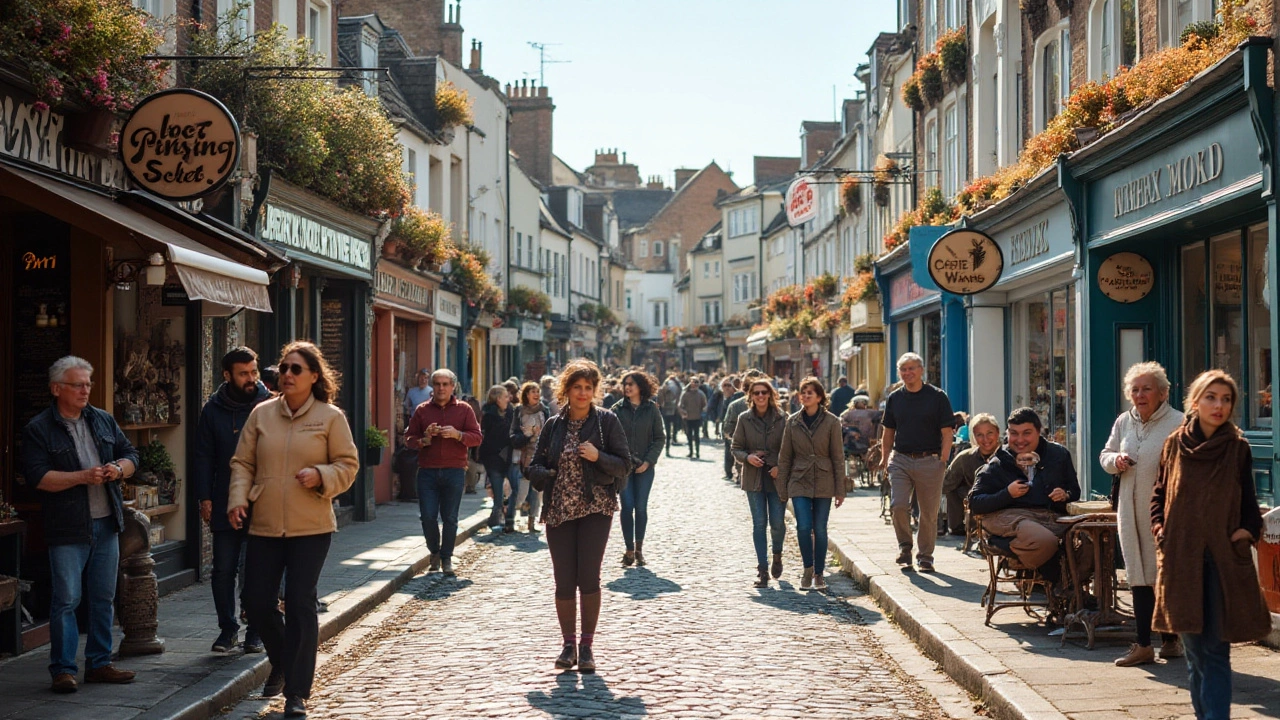Unveiling The Hidden Downsides of All-Inclusive Hotels
26 Oct, 2024Walking into an all-inclusive hotel can feel like stepping into a luxurious cocoon of comfort and ease. The allure of unlimited food, drinks, and entertainment makes these resorts a popular choice for many vacationers. But have you ever wondered what lies beneath this cozy veneer?
As much as these establishments promise a hassle-free escape, there are significant trade-offs that every mindful traveler should consider. From compromising on local experiences to inadvertently impacting the vibrant economies of the destinations we visit, the disadvantages are worthy of examination.
Let's peel back the layers and explore why an all-inclusive might not always be the dream vacation for everyone.
- Lack of Authentic Local Experience
- Impact on Local Economy
- Overcrowding and Limited Privacy
- Quality and Variety of Food and Services
- Restrictions and Hidden Costs
Lack of Authentic Local Experience
Staying at an all-inclusive hotel often means you're insulated from the world outside the resort's borders, a splendid isolation if you will. Inside, everything is conveniently curated and tailored to fit a universal tourist palate and sometimes, it can make the surroundings outside feel distant, like they're part of another world altogether. The charm of the local culture, the rhythm of everyday life, and the unique flavors of traditional dishes sometimes fade into the background, hidden by the more familiar comforts of the resort.
This disconnect from local culture might mean missing out on spontaneous interactions with local artisans or shop owners. It's these everyday experiences, like wandering through a bustling street market or chatting with a village elder about local history, that often leave the most lasting impressions. Can these human connections forged in chance encounters be matched by scripted entertainment or buffet line pleasantries?
At the core of residing within the confines of a pristine resort is the unintentional avoidance of authentic cultural exchanges. When immersed in a homogeneous environment that's designed to cater to a global clientele, there's a gamble at play: will you catch a genuine glimpse of the locale's soul, or will it be just a tantalizing mirage? Without venturing beyond the resort, many diverse and enriching experiences remain elusive.
It is not uncommon to hear from travel enthusiasts who cherish authentic interactions. As travel writer Tim Neville once shared in an article,
"The moments that most define my trips are usually unplanned and arise from being open to my surroundings."His words echo the sentiment that exploration breeds unforgettable stories. And yet, within the confines of a resort, opportunities to unearth the hidden gems of local life can remain just beyond reach.
By not engaging with the culture outside the resort walls, travelers may inadvertently contribute to a distorted perception of a destination. Destinations known for their rich cultural heritage might transform, trying to fit the 'foreign' mold that tourists demand. It's an unintentional demand for familiarity over authenticity, and it could be at the cost of longstanding traditions and practices.
Impact on Local Economy
All-inclusive resorts often market themselves as a seamless way to enjoy a luxurious vacation without the hassle of planning each detail. Yet, what's frequently glossed over is how these resorts can detrimentally affect the local economies they inhabit. When travelers opt for all-inclusive packages, which bundle stay, food, and entertainment into a single up-front cost, they tend to spend the majority, if not all, of their vacation time on the resort premises. This means that their dollars rarely reach the hands of local entrepreneurs and merchants who rely heavily on tourism to sustain their livelihoods. Instead of dining at local eateries, trying out street food, or shopping at local markets, resort guests are confined almost entirely to what the hotel offers. This limited scope of spending contributes little to surrounding businesses and local artisans, ultimately stifling potential growth and development in the area.
The convenience of an all-inclusive stay comes with the sacrifice of engagement with local cultures and economies. Many resorts import their goods and supplies in bulk from suppliers based elsewhere, which limits the demand for locally-produced items and ingredients. Such practices funnel money out of the local community that could otherwise support local farmers, fishermen, and other suppliers. In some regions, this leads to resentment among local populations who see hotels benefiting from the natural beauty and culture of their land without fair compensation or reinvestment into community infrastructures. It's a stark contrast with more immersive travel. Independent travelers, for instance, often spend freely across a variety of local establishments.
"All-inclusive resorts often operate as sealed bubbles... guests may be in a pristine paradise, but without making meaningful connections with the actual place and people," shares a travel expert from the Economist.
Resorts do provide employment opportunities, which is undeniably important for local communities, yet many of these jobs are often low-wage positions with minimal benefits. Beyond wages, the potential for career advancement is limited. Family-run shops, cafes, and tour operators could offer the same initial employment opportunities but also provide a ladder for entrepreneurial ventures that contribute to sustainable local economic growth. Supporting these businesses directly also enhances the tourist experience by providing a richer cultural exchange, authentic local cuisine, and souvenirs with real stories behind them. Travelers keen on responsible tourism might prefer accommodations that are not all-inclusive, allowing their vacation investments to have a broader impact.

Overcrowding and Limited Privacy
One of the undeniable issues with opting for an all-inclusive hotel is the persistent swarm of people who share the same oasis as you. These establishments are designed to cater to hundreds, if not thousands, of guests at any one time. This can often result in bustling dining halls where the hum of chatter is almost a constant background sound. It feels like standing in a cafeteria during the lunch rush, which can take away the serenity that many seek during a vacation.
Imagine waking up early in hopes of securing a spot by the pool, only to find rows of sun loungers already claimed with a colorful array of towels. It's not uncommon in these resorts for guests to rise with the sun just to mark their territory poolside. This high demand for leisure space can overshadow the luxury experience, as scrambling for the best spot is hardly the relaxing getaway many envision.
Overcrowding extends beyond the sun-drenched pool terraces into the dining spaces as well. Meal times can become a veritable sea of people, with lines forming for the buffet as guests wait to sample the culinary offerings. Despite the promise of unlimited cuisine, the quality of food can sometimes take a hit under the sheer volume of meals served. As a result, you might find yourself longing for the quaint intimacy of a secluded local eatery rather than the echoing bustle of a hotel dining room.
Sacrificing privacy is another concern when exchanging the comfort of routine privacy for a bustling resort. In amenities like spas and gyms, intimate experiences can become lackluster with the hustle and bustle of noisy crowds. There is a departure from tranquility when sharing this space with strangers, which may dampen the spa-like calm you hoped for. Whether you're up early to work out or lining up for a massage, the idea of relaxation becomes intermingled with the ever-present murmur of familiarly unfamiliar faces.
For those who crave some alone time, the throng of other vacationers can be a significant deterrent. This element of crowding often means finding a quiet corner becomes an expedition in itself. Many might find themselves retreating to their rooms just to escape the constant throng. On a similar note, these spaces can transform into scenes of chaotic energy during high season, when hotels reach peak capacity, admittedly diminishing personal enjoyment.
"The curse of the all-inclusive is that while it simplifies your stay, it also invisibly lays tracks for a train of many to follow, often leading to the pursuit of the same slice of paradise," remarks travel writer and anthropologist, Daniel Wallace.
Ultimately, if your idea of a holiday leans towards peace, solitude, or exclusivity, the inherent nature of these all-inclusive hotels might surprise you in ways both expected and unforeseen, tipping the scales from indulgence towards a sometimes unwelcome camaraderie with fellow holiday makers.
Quality and Variety of Food and Services
When you think of all-inclusive hotels, images of endless buffets and poolside cocktail service might come to mind. It sounds like a dream vacation for those looking to relax without worrying about the next meal or entertainment plan. However, many guests have found that the abundance of food and services doesn't always equate to quality or variety. A typical all-inclusive resort might offer a selection of international dishes that rarely change, often catering to a specific palate rather than showcasing truly diverse cuisines. The repetitiveness can make guests feel as though they are eating the same meal throughout their stay, diminishing the excitement of dining experiences that generally accompany travel.
One of the challenges is catering to hundreds, sometimes thousands, of guests in a single property. This sheer volume can often push resorts to prioritize quantity over quality. It's not uncommon to hear travelers voice disappointment over the lack of authentic fare that might give them a taste of the local culture. Instead, these sprawling buffet lines may present pre-packaged or mass-produced items that fall short in flavor and authenticity. For instance, instead of freshly caught local fish, you might be served a fish patty that has little in common with the genuine article. This can lead to a missed opportunity for guests who hope to experience genuine cultural flavors and culinary traditions, an essential part of travel that all-inclusive settings often fail to capture.
Aspects like service can also pose an issue. With the convenience of an all-in-one setting, guests might not always get personalized attention or service excellence. Staff in these locations are often stretched thin, focusing on efficiency rather than fostering engaging interactions. While some guests may appreciate the broad strokes of efficient service, others might feel it lacks the personal touch or warm hospitality found in smaller, local establishments. Moreover, guests might sometimes find themselves peering through a small selection of activities or shows, particularly during the off-peak hours, which could lead to a moment of hesitation when considering next time opting for an all-inclusive holiday.
According to a survey by Skift, which highlights global travel trends, 39% of travelers listed food as the most important factor in their vacation satisfaction. This emphasizes that the culinary experience can often make or break a trip, and when that's compromised in an all-inclusive setting, travelers may leave feeling less satisfied.
"Travelers often want to taste the local culture through their meals, and all-inclusives can sometimes miss that mark," notes culinary expert Michael Jenkins.For this reason, guests should consider balancing the ease of the resort's offerings with a venture beyond its gates. A local dinner at an authentic restaurant or a street food tour could provide much-needed variety, offering both high-quality and memorable dishes that reflect the true character of the region.

Restrictions and Hidden Costs
Upon booking your stay at an all-inclusive paradise, the promise of unlimited indulgence can be very enticing. Many guests arrive with dreams of endless gourmet meals, flowing cocktails, and exhilarating activities. Yet, the reality often unwinds with a series of unexpected restrictions and hidden costs that can dampen the vacation spirit. It starts when certain amenities, assumed to be part of the all-inclusive package, have time restrictions or require reservations. This is particularly true for specialty dining options, which are not available every night, forcing guests to adhere to a strict schedule. While nobody wants to worry about booking requirements when they’re on vacation, this is exactly what many find themselves doing.
Adding to this, numerous all-inclusive hotels exclude premium spirits and certain activities from their inclusive offerings, catching travelers off guard. For instance, activities that promise great fun such as scuba diving, spa treatments, or certain excursions are often tagged with additional costs. Guests frequently face choices between paying extra or sticking to less exciting alternatives, compromising the quality of their vacation experience. Also, while many resorts claim to provide Wi-Fi for free, the signal strength is often only decent in common areas. Want to enjoy Wi-Fi in the privacy of your own room? That might land you yet another surcharge applied at checkout.
“The devil is in the details, and with all-inclusive deals, not everything is covered by the all-encompassing promise of 'everything paid,' which can lead to exasperation by the resort pool.” - Travel Expert from Lonely PlanetEven more frustrating is the inevitable fine print associated with these packages. Many guests find their excitement deflate when confronted with a long list of exceptions that weren't disclosed at the time of booking. The allure of all-encompassing packages often overshadows these small details. “All-inclusive” trips might also disguise expectations of gratuities—which are technically included—but often result in a staff tried and true method of making guests feel 'required' to tip extra for better service.
Paying Attention to Extra Fees
In a business model designed around maximizing perceived value, hotels subtly pass off costs to travelers through a series of small charges that can add up, making what appeared to be an economical vacation considerably pricey. A lingering example is the ever-present resort fee that covers a host of sundries, extending from parking services to usage of amenities like saunas or tennis courts. How many times have travelers been caught unaware of these fees, feeling disgruntled as their check-out bill significantly exceeds their initial budget? A reported 15% of travelers express dissatisfaction due to these unanticipated charges. Ambiguity rules the day and soon guests find out that not even bottled water is part of their all-inclusive experience without a fee on demand.
It’s a classic case of understanding what you're signing up for. Inform yourself ahead of booking and scrutinize every clause. A meticulous study of reviews, terms and conditions, and the guidance of online travel forums can help guests discover what exactly is covered by their package and what is not. All-inclusive hotels might sound like the answer to every travel woe, but arming oneself with knowledge can often lead to better decision-making, ensuring no undesirable surprises crop up during the holiday.
| Potential Extra Costs | Average Additional Fee |
|---|---|
| Specialty Dining Reservations | $30 per person |
| Premium Spirits | $10 per drink |
| Wi-Fi in Rooms | $15 per day |
| Spa Treatments | $100 per session |

 by
by